How American political refugees, economic migrants and devoted Anglophiles are transforming London
One luxury restaurant, apartment and tennis court at a time.

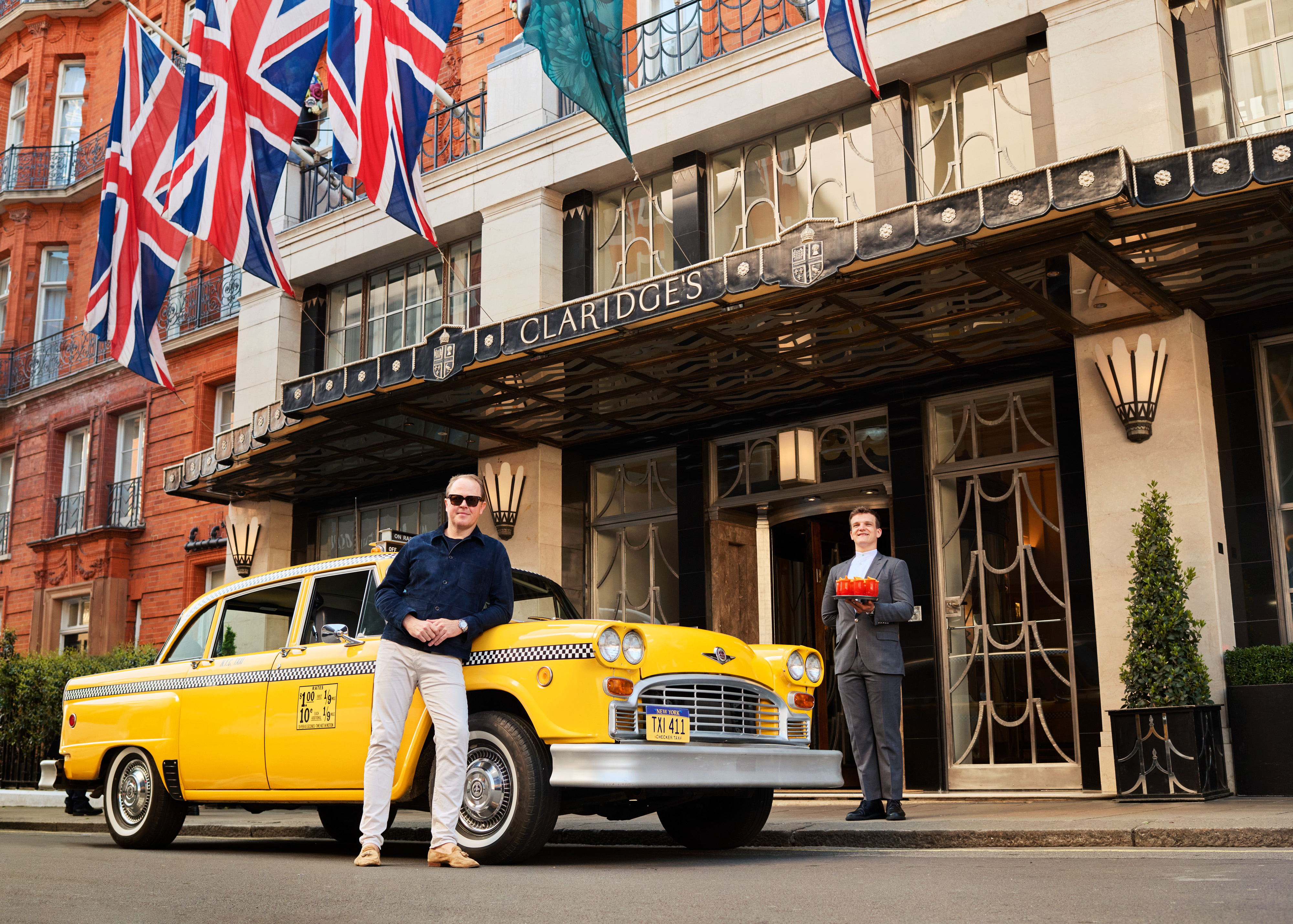
Exquisite houses, the beauty of Nature, and how to get the most from your life, straight to your inbox.
You are now subscribed
Your newsletter sign-up was successful
For 12 years, it has been impossible to get a reservation at Carbone. That is, unless you know the chef, the maître d’ or the person on the door who turns away the blaggers. The famed New York restaurant, which serves linguini vongole and spaghetti puttanesca under the heading ‘macaroni’, has welcomed Leonardo DiCaprio and Barack Obama and has outposts in Miami and Hong Kong. It is now the toast of London, where it opened two weeks ago at No 30, Grosvenor Square, instantly cementing itself as one of the most talked-about restaurants in the city.
The menu of Italian-American classics is almost irrelevant. People queue for the vibe. Within the same block as the restaurant is the Chancery Rosewood, the latest addition to London’s luxury hotel scene in what has been described as the year’s buzziest opening.
The site is of historic significance: it was formerly home to the American Embassy, which moved to new, bomb-proof premises in Nine Elms in 2018. Just down the road is Lombard House, one of Mayfair’s grandest buildings, erected in 1901 — then, it was known as Sunderland House — for America’s most notorious dollar princess, Consuelo Vanderbilt.
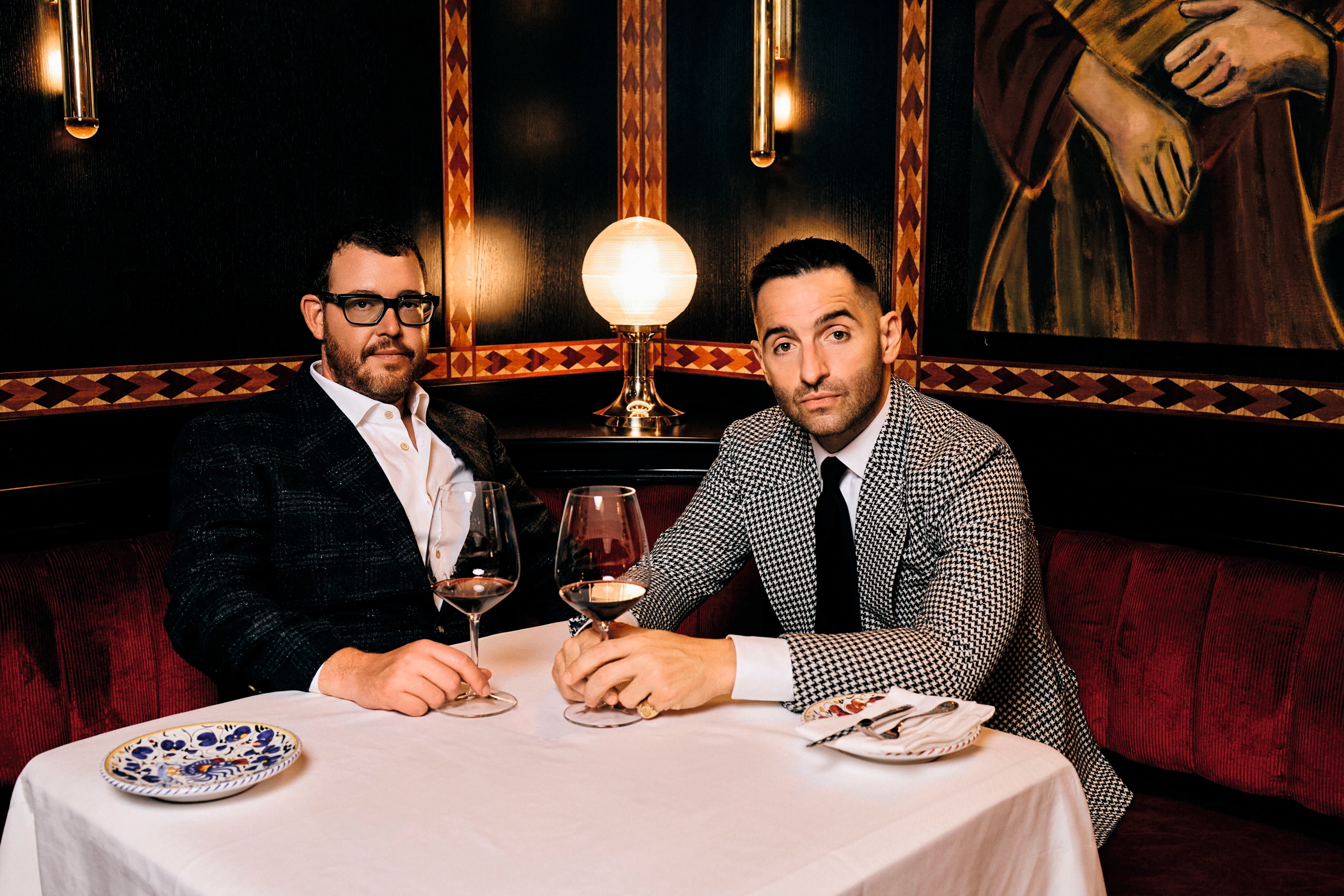
Carbone founders Jeff Zalaznick (left) and Mario Carbone toast adding London to their growing tally of in-demand restaurants.
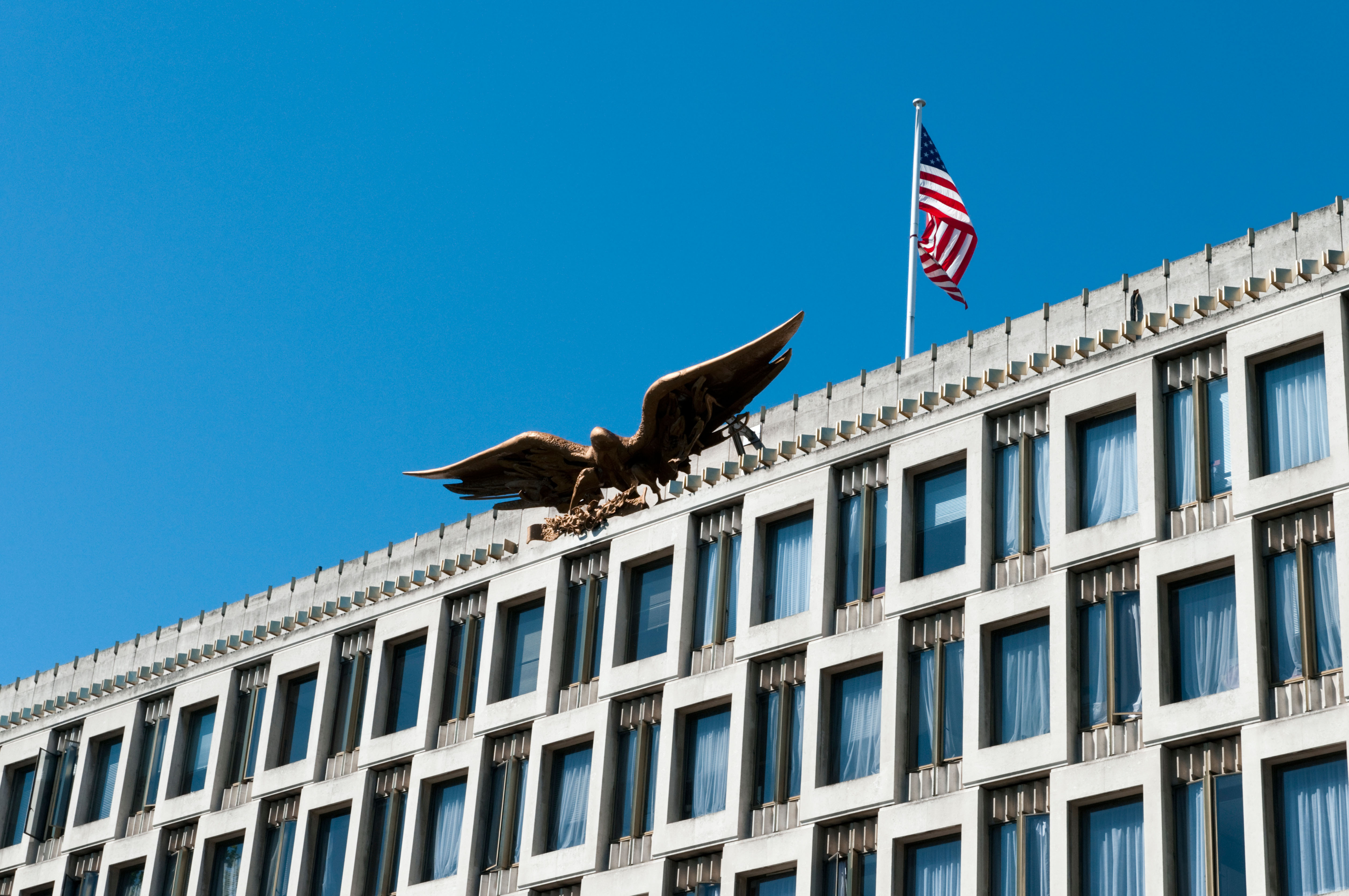
The old American Embassy in Grosvenor Square is now a luxury Rosewood hotel.
Anglo-American relations have long proved fertile ground for storytellers. Yet the USA’s current obsession with Britain feels close to reaching the high it did in 2001, when American students flocked to St Andrews, Fife, in the hope of meeting Prince William. Netflix enjoyed huge success this summer with My Oxford Year, in which an American student falls head over heels for a British PhD candidate amid the dreaming spires. Only months before, the streamer scored big with Lena Dunham’s Too Much, in which a loud and mouthy New Yorker moves to London for work.
In the real world, too, there’s something in the air. A century or so after the Vanderbilts first laid claim to Mayfair, their present-day counterparts are doing the same. Much has been written about wealthy Americans buying up the British countryside: last month, music moguls Beyoncé and Jay-Z were said to be eyeing up a house in the village of Great Tew. Twenty minutes down the road is the Cotswold outpost of Restoration Hardware, an American home-furnishings company that took over Aynhoe Park, a Sir John Soane-designed building, last year. Yet it is in the capital, more than anywhere else, that a cavalcade of expatriates is putting glitter and gold back into our wealthiest districts.
It is a tale as old as America itself. From Newport to San Diego, our cousins across the pond have long romanticised the green and pleasant land from whence their forefathers came. They see a country whose customs, no matter how quixotic or dated, they are still inextricably bound to; the home of picnics, sweeping lawns and Harry Potter. This enthusiasm reached fever pitch after President Trump was re-elected last November: applications for British citizenship by US citizens increased by 40% in the last quarter of 2024.
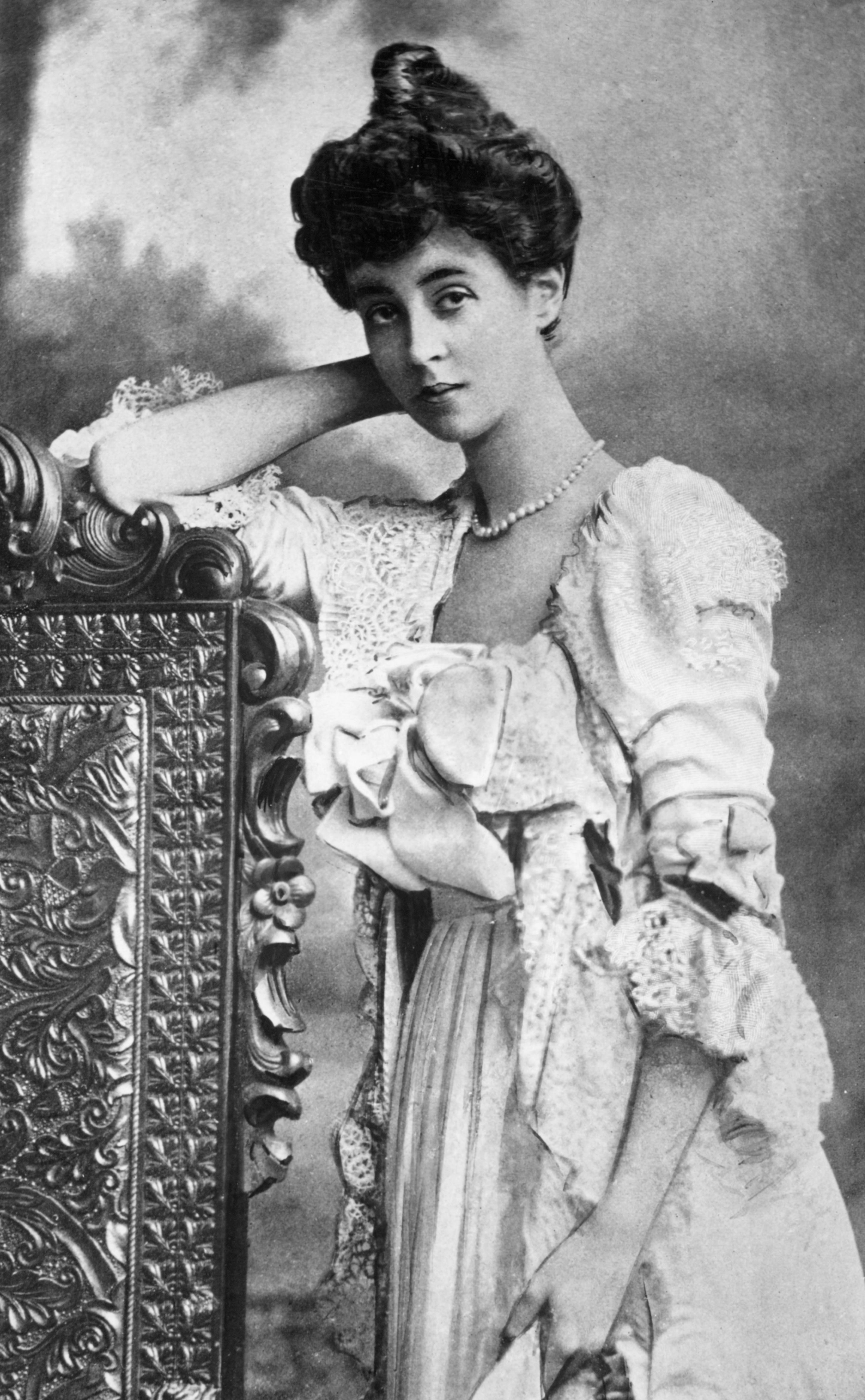
Consuelo Vanderbilt was one of the first American invaders.
‘There are more Americans buying now than at any other point in my career,’ says Charles Leigh, sales director of luxury developments The Whiteley, and 60 Curzon, who has worked in the London property sector for 30 years. In July, the Wall Street Journal reported that Americans were ‘snapping up London mansions like never before’. Although the sale of high-end homes dropped this year after the Government closed a tax loophole on non-domiciled residents, American clients appeared unscathed. They now form the largest demographic of overseas buyers in the capital, accounting for one-quarter of prime purchases in 2025 — up from 18% two years ago, according to data from Beauchamp Estates.
Exquisite houses, the beauty of Nature, and how to get the most from your life, straight to your inbox.
Americans have historically bought in Chelsea; the 2001 population census showed that 6.53% of SW3 and SW10 residents were born in the USA. In the 2021 census, that figure dropped to 4%, a sign that American buyers were starting to look elsewhere. Notting Hill has proven especially popular with the latest wave. In the luxury market, Charles says there are two kinds of buyers: ‘the guys who turn up to a viewing in sneakers, jeans and a T-shirt’, who are more likely to buy in west London and ‘those who show up in an immaculately tailored suit with a tie, pocket square or a couture outfit’, who are more likely to buy in Mayfair.
Among the many developments targeting Americans the same way Russians were once courted for penthouses is the Reuben brothers’ Piccadilly Estate, a £1 billion project across some 1¼ acres of Mayfair, and the residences at The Peninsula in Belgravia. The penthouse there has reportedly been snapped up for £100 million by American hedge-fund manager Ken Griffin.
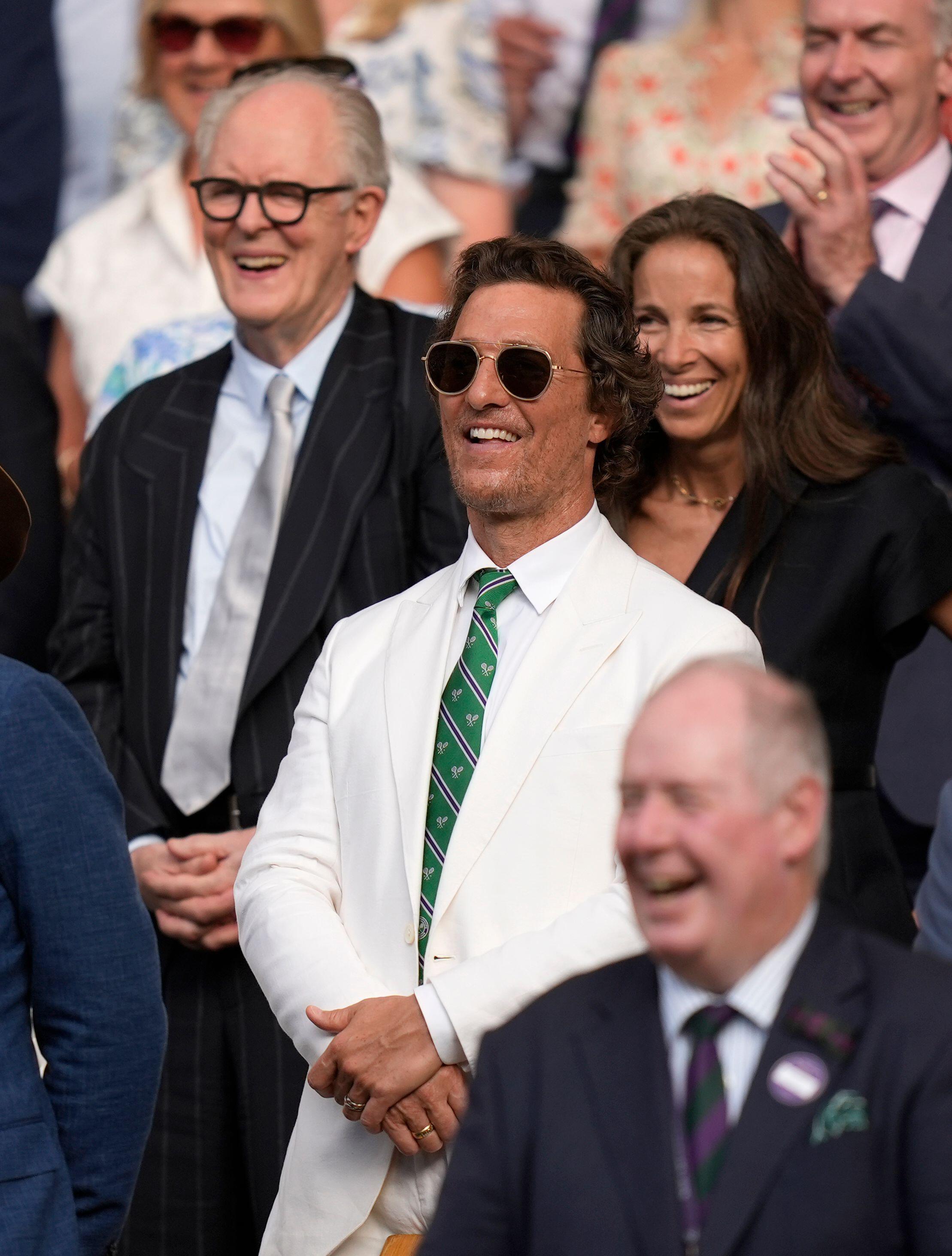
Matthew McConaughey attended this year’s Wimbledon men’s final and North American ex-patriates often crowd London’s courts.
US citizens are moving to Britain for three reasons: a desire for political stability, cultural entente and fiscal advantages. For many, these are overlapping categories, so contiguous in some cases that the Venn diagram is more of an eclipse. The first reason is straightforward: there is a genuine concern about the direction American politics is taking. The second reason also makes sense: Americans see great value in Englishness and can be more Anglophile than the English themselves. The third reason is more surprising, given America’s exceptional economic resilience.
Britain, we often hear, is in a deleterious state with stagnant growth, uncompetitive salaries and dwindling international influence. Yet to the wealthy American expatriate, our country offers greater thrills than those they could get for the same amount of money back home. Many of them take jobs in London knowing that they could be paid more in the USA, but believe the trade-off to be worth it. The different visas available to them mean they often end up in remunerative industries, such as tech, finance or medicine. ‘The new American dream,’ says Danielle Rackley, a Floridian expatriate studying towards a graduate degree in artificial intelligence, ‘is to leave.’
For entrepreneurs able to run their companies from anywhere in the world, London is a gold mine. The city offers the same luxuries as New York or San Francisco at a lower price, with more reasonable tipping rates, a better quality of life and none of the language barriers one might have endured in Paris, Tokyo or Zurich. For those who have already made their millions in America, London is also increasingly seen as a great place to retire.
More than a career or real-estate portfolio, expatriates buy into a lifestyle, drawn to the allure of a nation that gave the world Jane Austen, Kate Moss and Claridge’s. Some champion this to the extent that they refashion their identities around their embrace of Englishness. ‘When I married into the British aristocracy,’ says Julie Montagu, Countess of Sandwich, in a video on her American Viscountess blog, ‘it was the start of a wonderfully exciting journey.’ Hailing from ‘a small town outside Chicago’, she now welcomes viewers on tours of historic British homes on her YouTube channel.
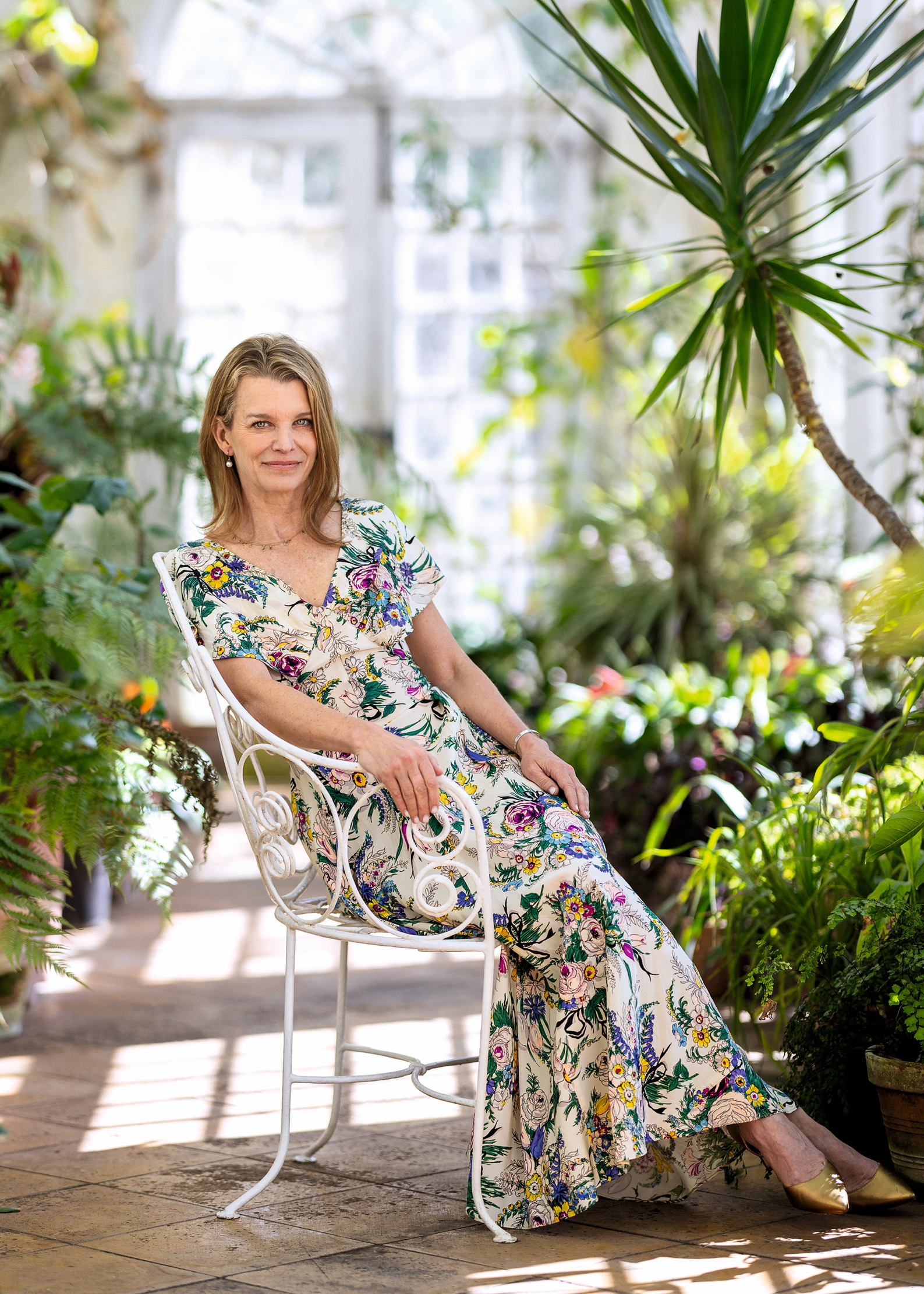
Julie Montagu, Countess of Sandwich embraces Englishness with her American Viscountess blog.
For some, Englishness is not merely something they covet, but a means to escape what they perceive as American excess. Many expatriates say they wanted to leave behind a ‘crazy’ and ‘destructive’ corporate culture. One Ivy League graduate, who worked on Capitol Hill and is now a writer in London, explains that ‘in America, your sense of self worth is dictated by which university you went to, together with certain corporate and professional placements’. He describes American life as one that forces people onto ‘a treadmill of achievement’.
Nonetheless, Americans often bring an enterprising spirit to our old ways. For one thing, they have injected fresh blood into London’s artistic and culinary scenes. In the past 12 months, Hollywood A-listers Lily Collins and Sigourney Weaver have both graced West End theatres. American cuisine now rivals French and Italian for dominance in Soho, with establishments such as Rita’s (49, Lexington Street) and Grasso (81, Dean Street) opening after the pandemic.
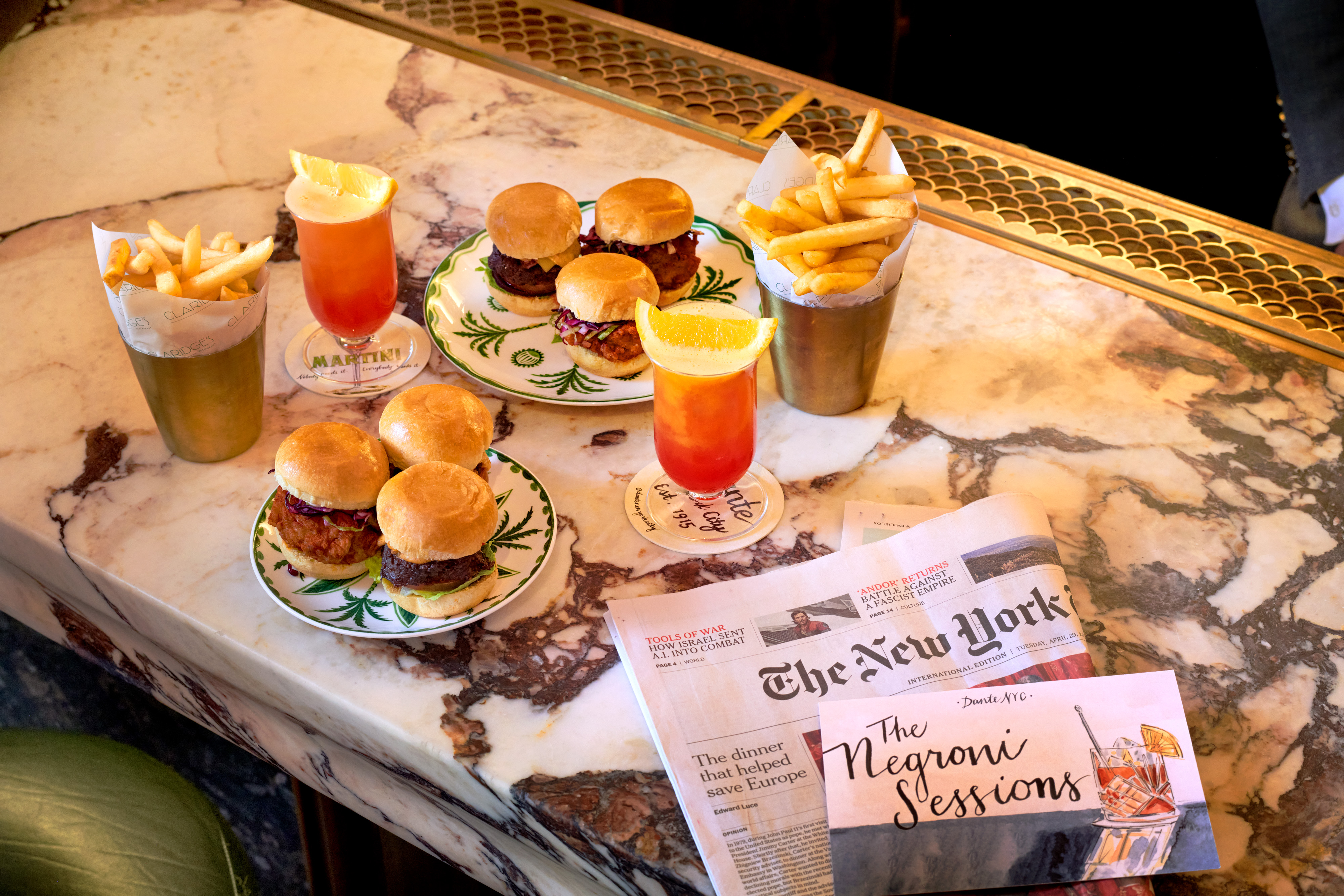
There is a growing vogue for New York-style dining — cocktail menus longer than the wine list and places that stay open way past most people’s bedtime. At Claridge’s, where the Star-Spangled Banner currently drapes the Davies Street façade, the dining room has swapped out its usual menu for Dante’s, the celebrated Manhattan bar that has taken over the hotel until Christmas (above). Last week, Ralph Lauren announced that he was opening a branch of his lauded New York Polo bar in the capital (though you'll have to wait until 2028 for it to open).
Among the quintessentially English hobbies enjoyed by Americans, tennis is number one. ‘I was playing tennis in Bishops Park last weekend,’ Charles tells me, ‘and I was surrounded by Americans on all the other courts.’ Rumour has it that The Regent’s Park Tennis Club is similarly popular.
The English private school, which offers not only academic rigour, but cultural immersion and, in the case of some boarding schools, the closest thing available to the set of a Merchant Ivory film, still holds a major sway over American parents. No doubt, their children will come to fill the gap left by those who have been priced out of private education since fees were raised in line with the imposition of VAT. Charles reveals that his clients, who are ultra-high-net-worth individuals, had begun to feel ‘increasingly uncomfortable in the USA’. Both of them had planned to use their residences at The Whiteley as a pied-à-terre, but have since decided to relocate their entire families to London and live here full time.
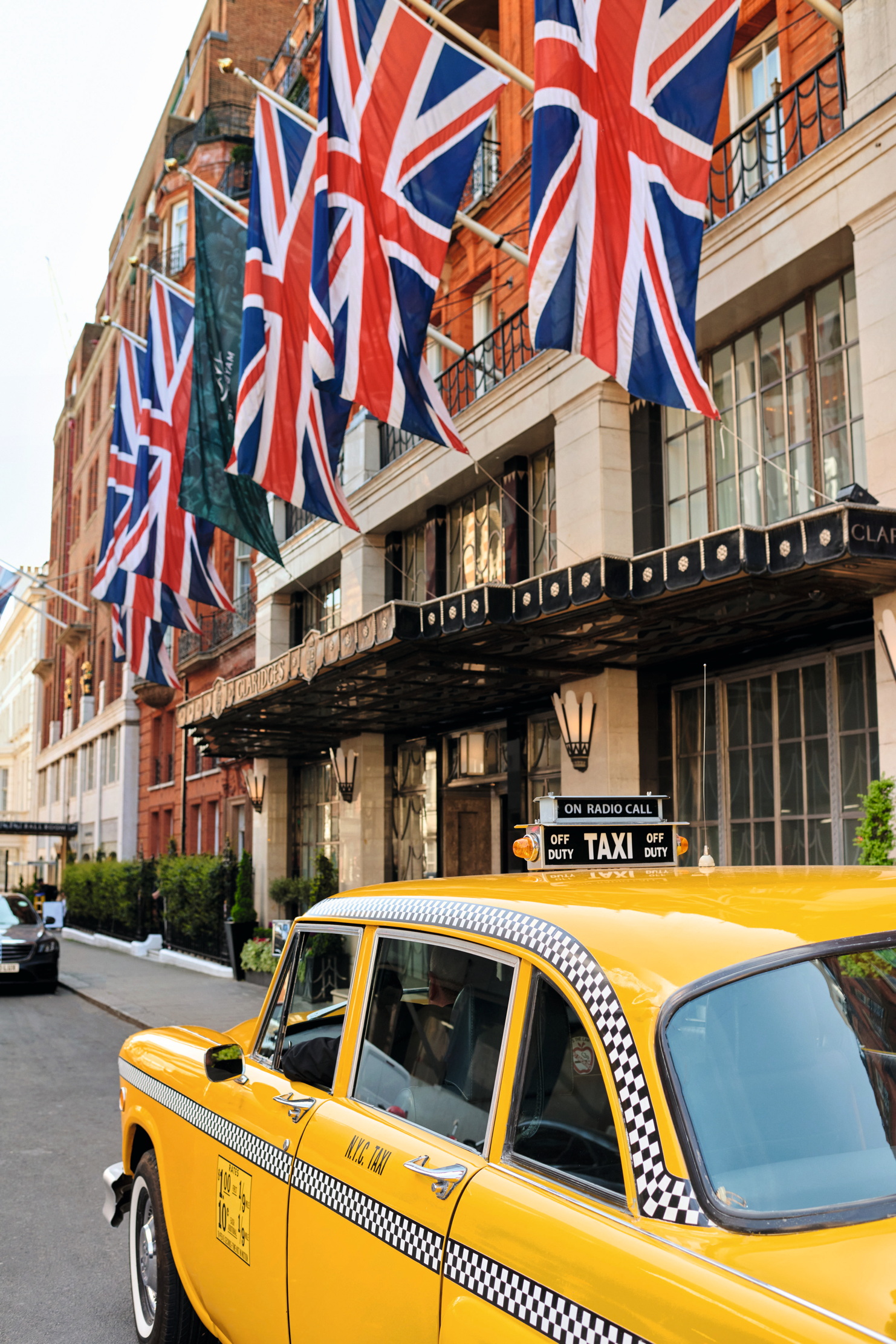
Dante's has laid claim to Claridge's until Christmas.
Of course, there is also much to miss about the motherland. ‘The USA does suburbs so much better,’ says Taylor Holmes, a Kansas City native who, until recently, worked here in an investment management company. She says she would happily move back to the US if her family were to grow and require a bigger home.
Taylor currently lives with her British husband in a two-bedroom apartment in Putney, having previously rented in Fulham and Notting Hill. They bought their flat earlier this year because the area had fewer tourists and offered close access to the Thames. It wasn’t straightforward. ‘How does anyone buy a house in this country?’ she asks me, describing the process as ‘a nightmare’. ‘So much red tape… That’s crazy to an American.’
Another one of my sources is facing a similar challenge. ‘We’re currently doing up my boyfriend’s flat in an old stablehouse,’ he explains. It is a Grade II-listed building that the council submitted for a heritage conservation review, so progress has been painfully slow. ‘The house is in the courtyard of an old Victorian block, where the horses lived, and was abandoned until the 1990s’, noting that few of the original features remain. The couple hired a British designer with a strong understanding of the context in which the stablehouse was built, aiming to restore and replicate some of the period details. At time of writing, the council is still playing hardball.
Enduring the perils of British bureaucracy as an American is sobering — few will view the UK through rose-tinted glasses after that, which makes an expatriate’s decision to stay all the more compelling. If Americans shopping in the prime central luxury market are making headlines, many more are to be found in east London — particularly De Beauvoir Town, a quaint and newly gentrified area sandwiched between Dalston and Angel. As I wait to interview an expatriate at the De Beauvoir Deli, a swanky joint frequented by the fashion and media set, the model Alexa Chung turns up in large aviator sunglasses to order a coffee.
‘Have you noticed that there are more Americans in London now,’ I ask them, ‘than when you first moved here?’ Our interviewee goes silent and gestures forwards and backwards. The people at the table in front of us are from the USA; so are those sitting right behind us.
Will Hosie is Country Life's Lifestyle Editor and a contributor to A Rabbit's Foot and Semaine. He also edits the Substack @gauchemagazine. He not so secretly thinks Stanely Tucci should've won an Oscar for his role in The Devil Wears Prada.
